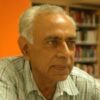Moving On and On
TRANSCEND MEMBERS, 5 Apr 2021
Dr. Ravi P. Bhatia – TRANSCEND Media Service
23 Mar 2021 – Life is a saga of changes and movement. Of course it also allows us to grow up, to marry, to have children and share our experiences — interesting or otherwise. One important aspect of change is to change one’s home, to move from a smaller home to a bigger one or to move from a rural to an urban centre.
This is a normal course of change. However, there are other factors that lead to major changes — war or migration from one country to another, or some other abnormal situation. When India became free from British yoke in 1947, it led to division of the country into a Muslim majority Pakistan and the remainder that allowed people of all faiths to live together in the truncated Bharat that was India.
My family was forced out of a major town called Lahore that was transferred to the new nation Pakistan. My father taught in a college there, my mother was a teacher of a small school. Our family lost everything — home, occupation, dignity and moved to a small town in India without any guarantee of a stable future. We children faced hunger and turmoil. It was not that only our family suffered in this manner. Thousands of other families faced trauma, hardship and deaths of one member or more of the family.
Despite this hardship and uncertainty, we children got good education in the new country and subsequently acquired a reasonably secure life. But our family was forced to move from a border town of the country to the capital — Delhi and from one home to a bigger home in the capital city. We did not own our home — we rented different houses. In some houses there was no electricity or limited electric power, but we somehow managed to survive in the boiling summer months.
The winter months were also severe, but at least one could put on an extra shirt or sweater to ward off the cold. There was an added advantage in these months. We could keep some food that we had not consumed on a particular day for the next day since the cold weather acted like a fridge which we did not possess at that time.
Living in different parts of the capital city of Delhi, we acquired geographical or historical knowledge about its various regions. One house we lived in for a few years belonged to the father of a well known actor of Hindi films which were produced in the distant city of Bombay. I met the actor on one occasion and he jokingly asked me if I would like to work in a Bombay film —called Bollywood similar to Hollywood — the centre of American films.
According to distinguished scholar Eric Overby, ‘We never fully move on. We leave a piece of ourselves behind …’
As a result, several decades later when we were living in another part of Delhi, I felt an urge to visit this actor’s home. What do I see — the house had been broken down and a multi storied building was coming up. Sad to see it. This happened in another house also where we had lived after some years — broken down and again a huge structure coming up there.
These events presented not only personal losses, but were a stark reminder of the inevitable changes taking place due to commercial and social factors. It was said that Delhi was built or rebuilt seven times earlier in the last two thousand years or more. My family was lucky to participate in some of these inevitable changes.
The builders of the city were historical forces — the Moguls, the British and other dynasties not so well known in History. These resulted in architectural, cultural, linguistic changes of the city. Who could prevent these? Earlier one could go by boat from Delhi to Agra where the beautiful Taj Mahal had been built by Shahjahan in memory of his beloved wife Mumtaz. One could still go to see this grand heritage structure not by boat but by road and get photographed in front of the grand dome.
This is an open invitation to see Taj Mahal. Come to India and see the new emerging country — historical and cultural, called Bharat or India. And if you have the time or the desire, meet the writer of this essay also. Till then adieu.
______________________________________________
 Dr Ravi P Bhatia is a member of the TRANSCEND Network for Peace Development Environment, an educationist, Gandhian scholar and peace researcher. Retired professor, Delhi University. His new book, A Garland of Ideas—Gandhian, Religious, Educational, Environmental was published recently in Delhi. ravipbhatia@gmail.com
Dr Ravi P Bhatia is a member of the TRANSCEND Network for Peace Development Environment, an educationist, Gandhian scholar and peace researcher. Retired professor, Delhi University. His new book, A Garland of Ideas—Gandhian, Religious, Educational, Environmental was published recently in Delhi. ravipbhatia@gmail.com
This article originally appeared on Transcend Media Service (TMS) on 5 Apr 2021.
Anticopyright: Editorials and articles originated on TMS may be freely reprinted, disseminated, translated and used as background material, provided an acknowledgement and link to the source, TMS: Moving On and On, is included. Thank you.
If you enjoyed this article, please donate to TMS to join the growing list of TMS Supporters.

This work is licensed under a CC BY-NC 4.0 License.